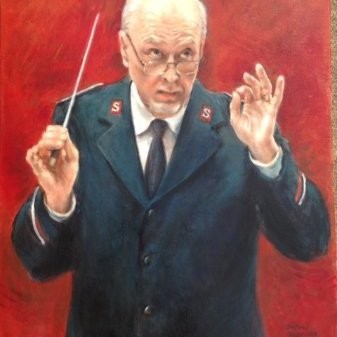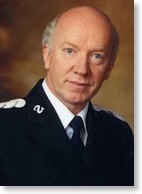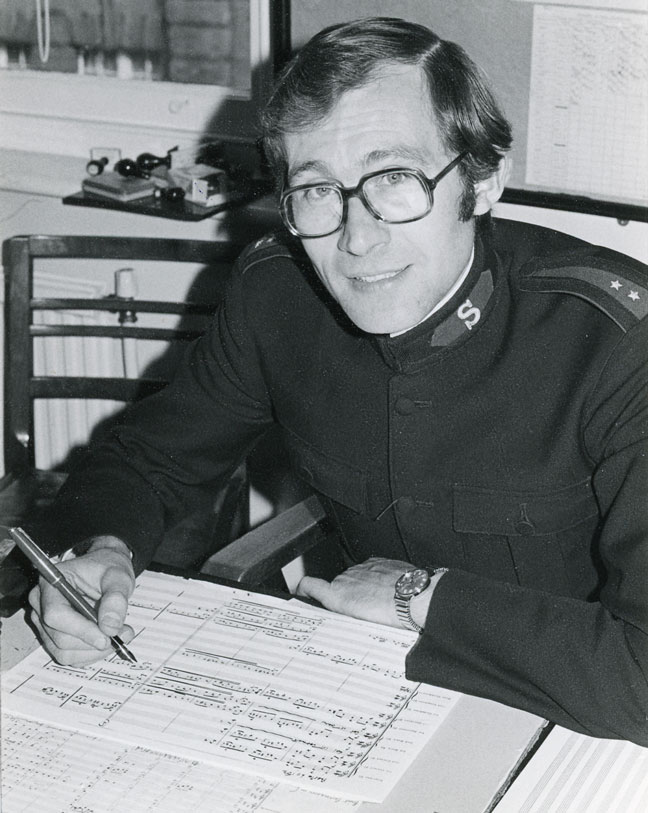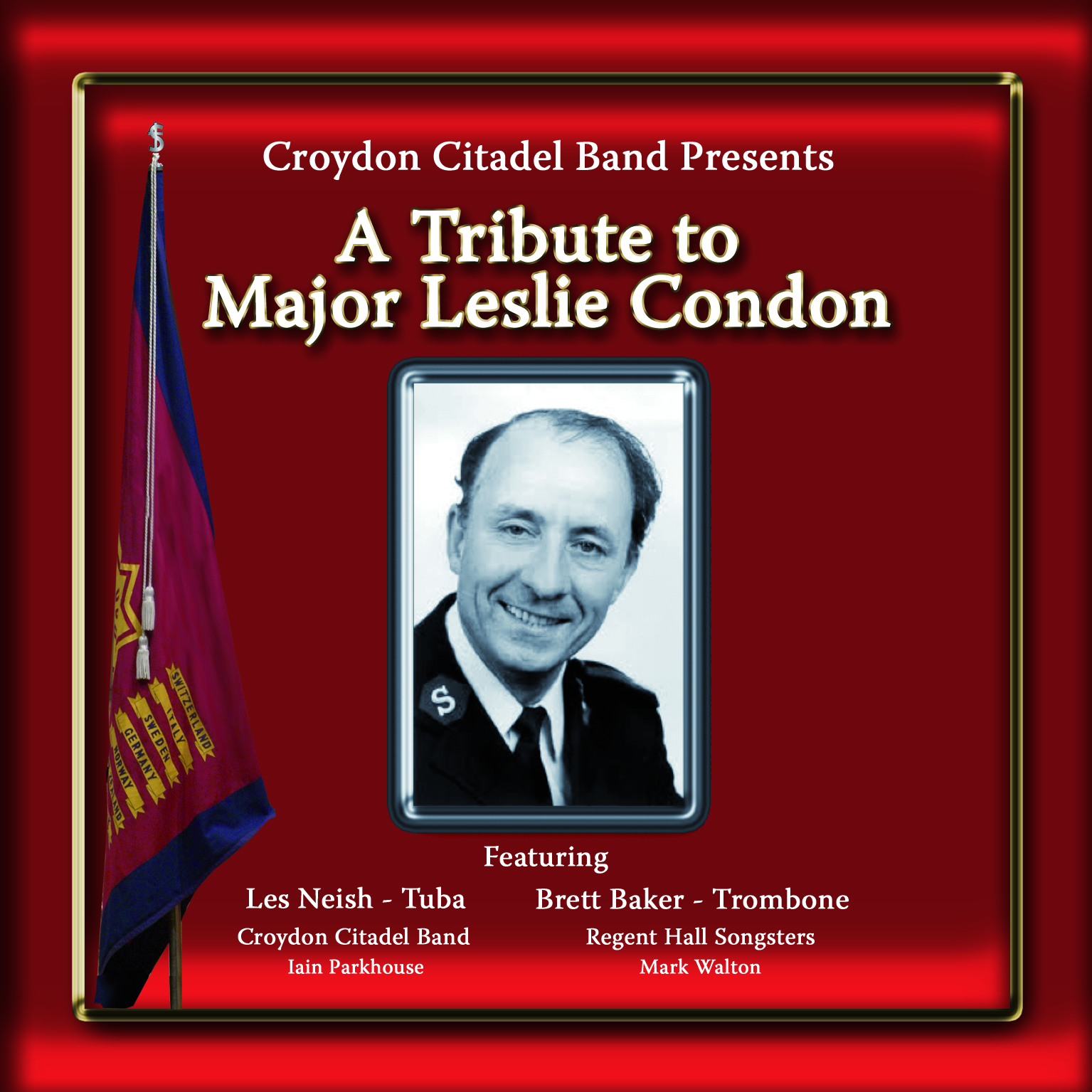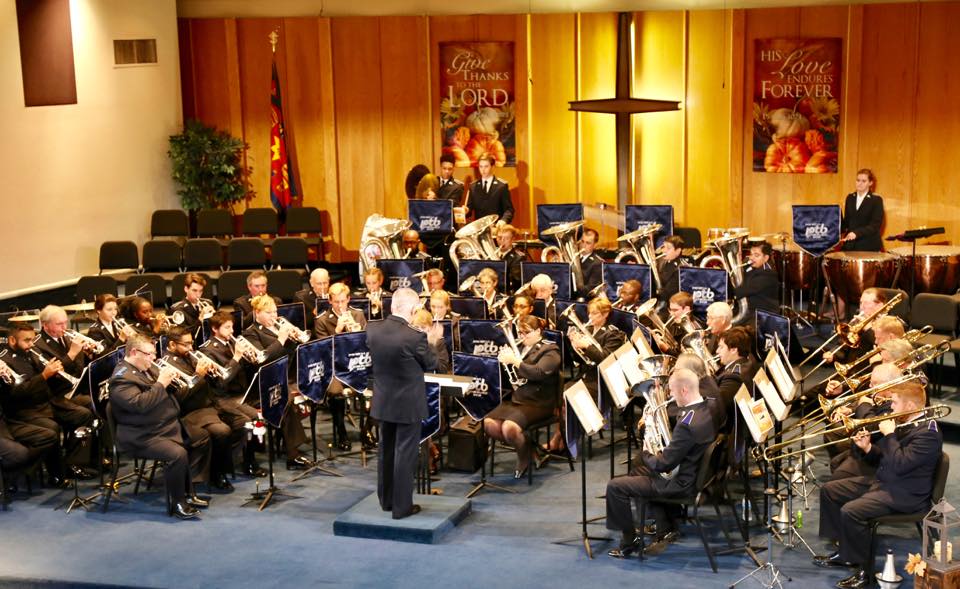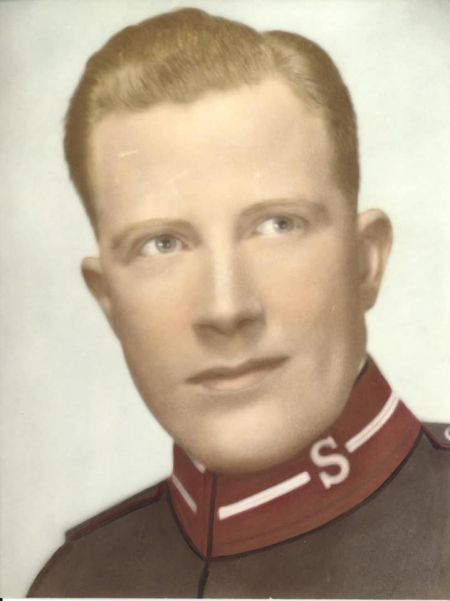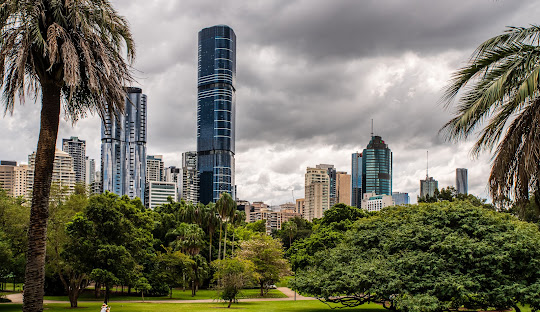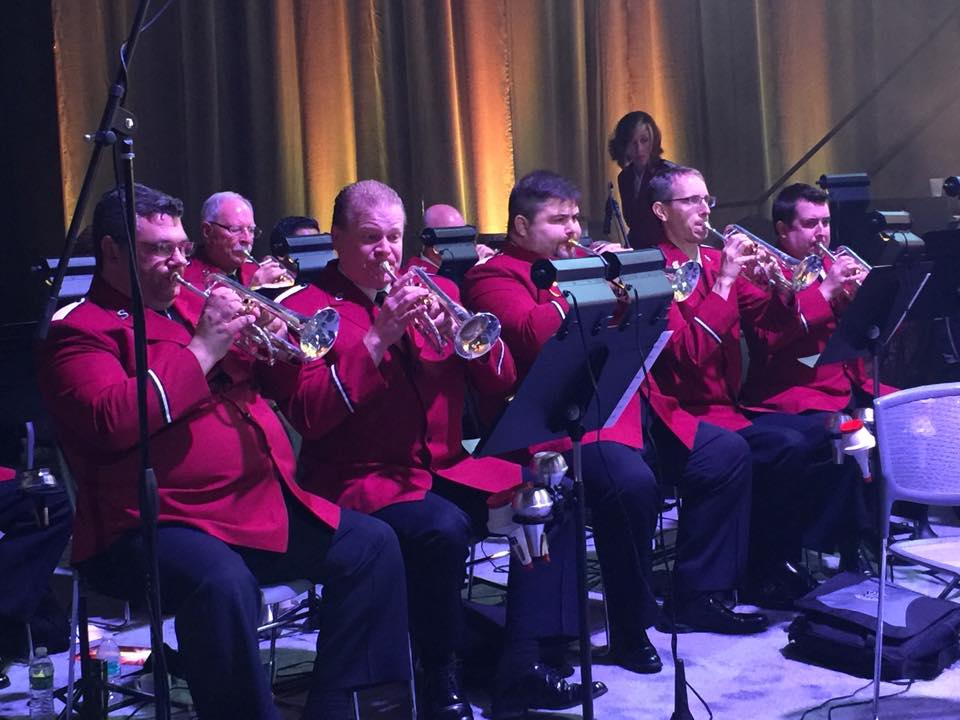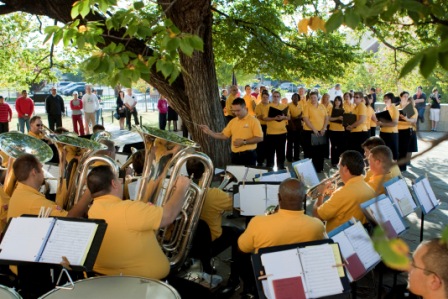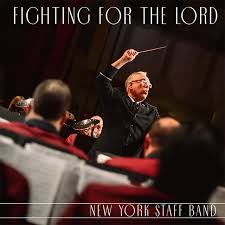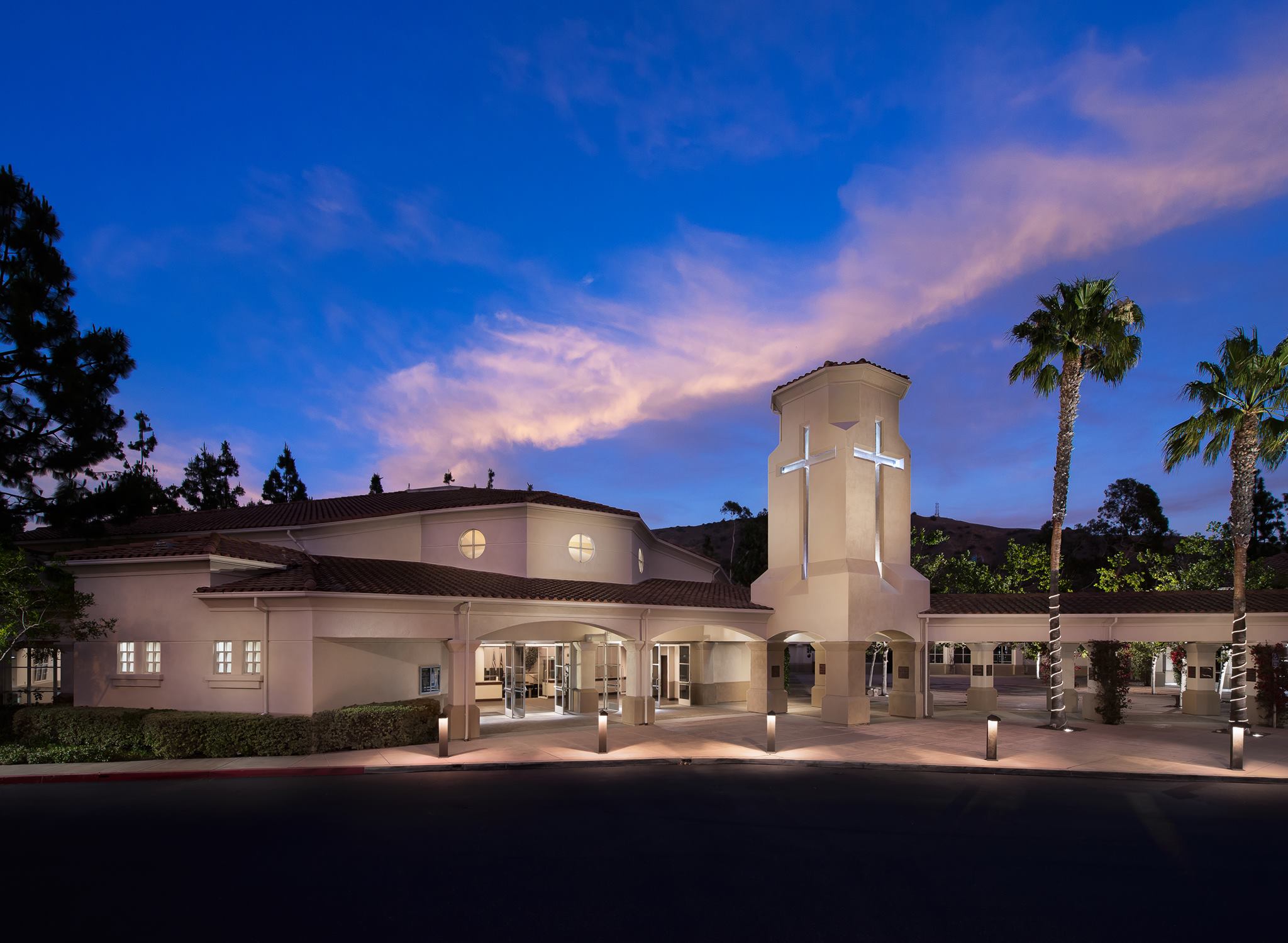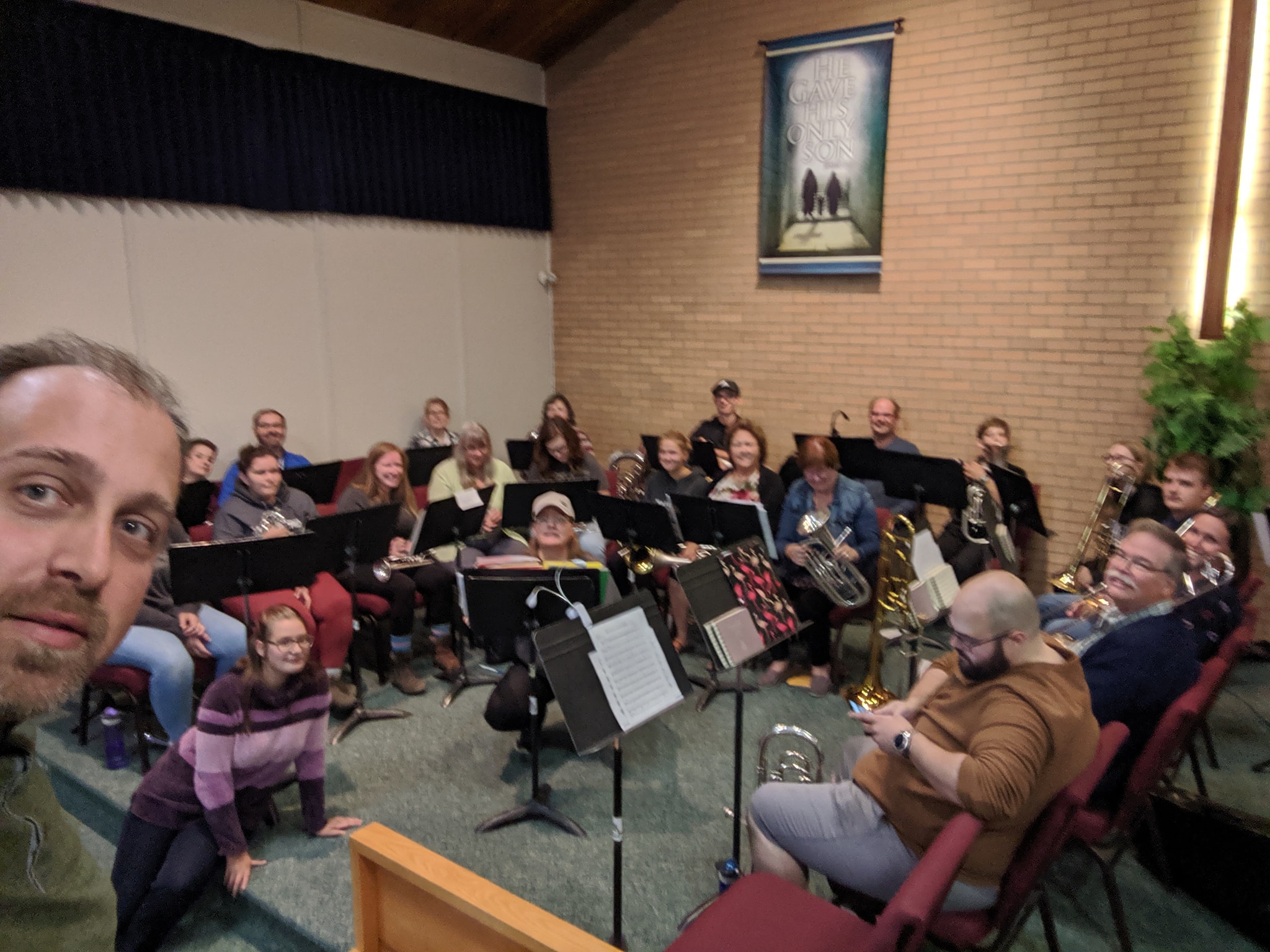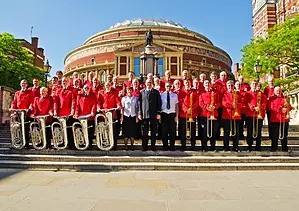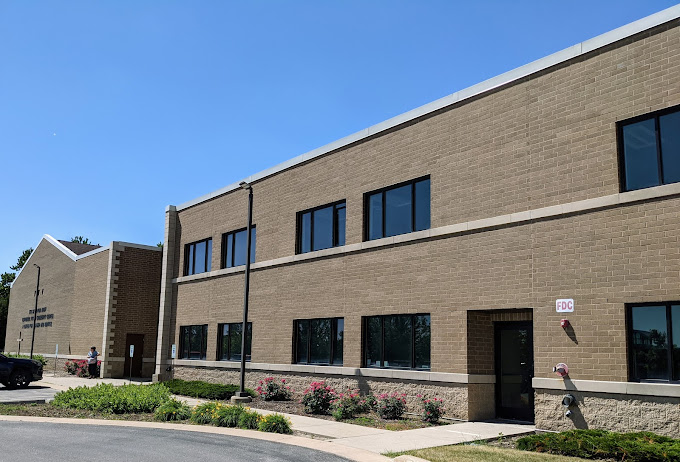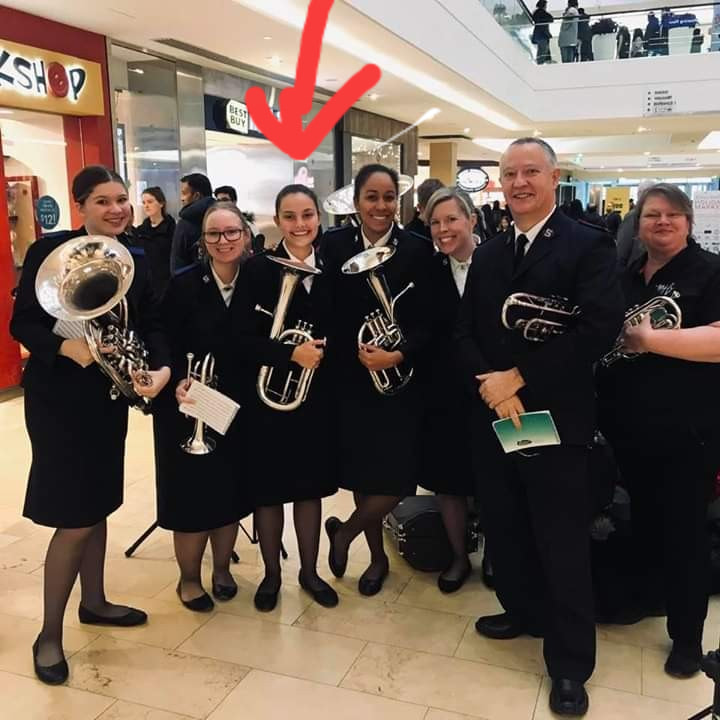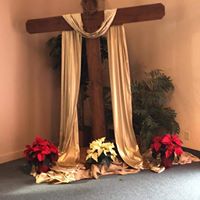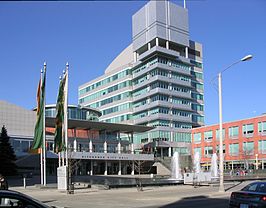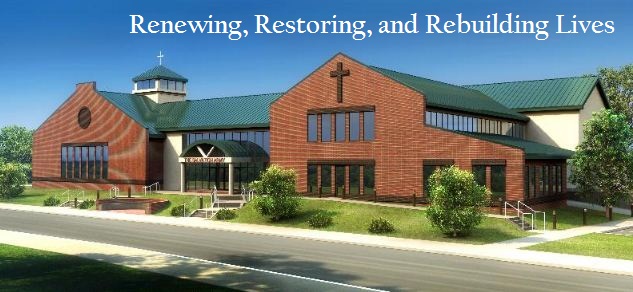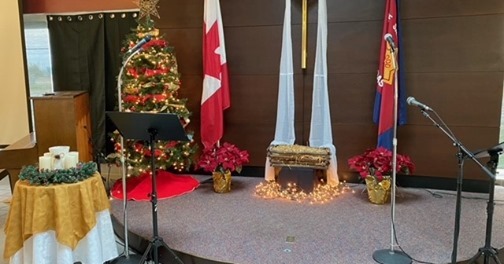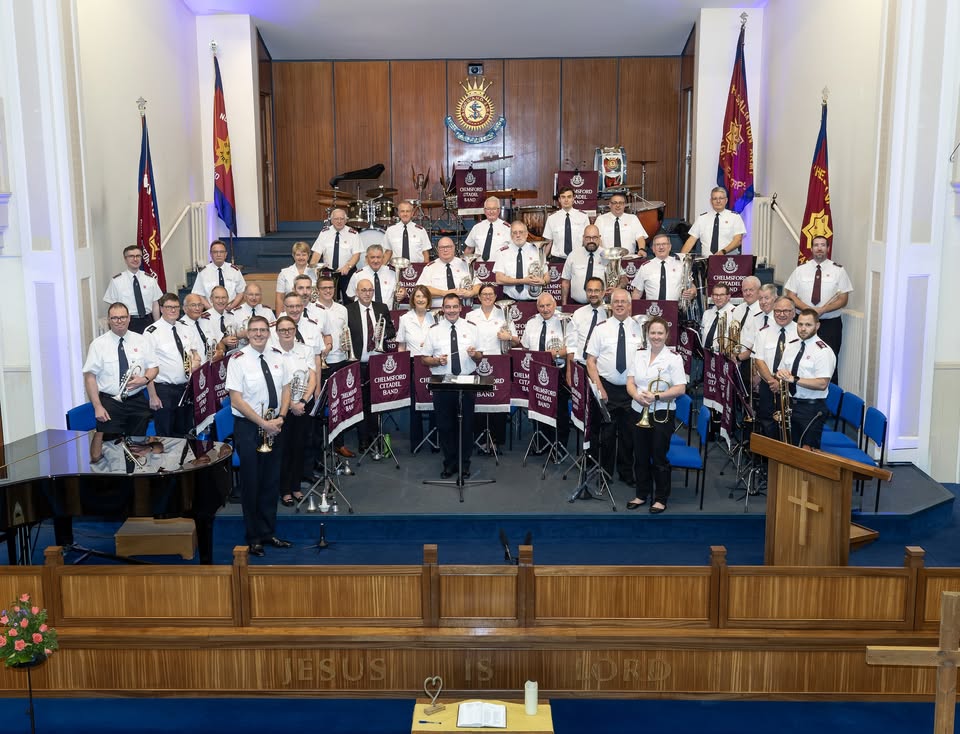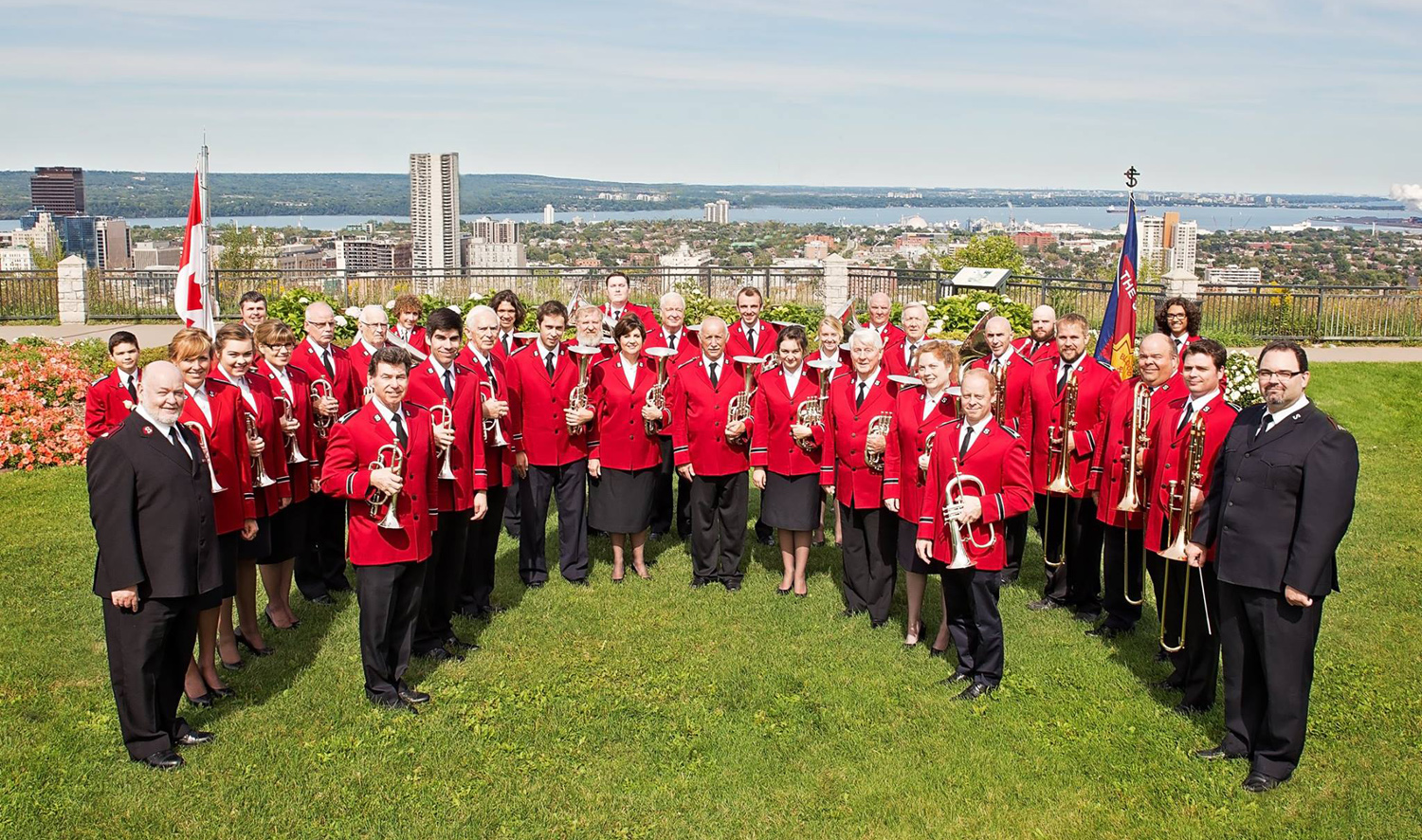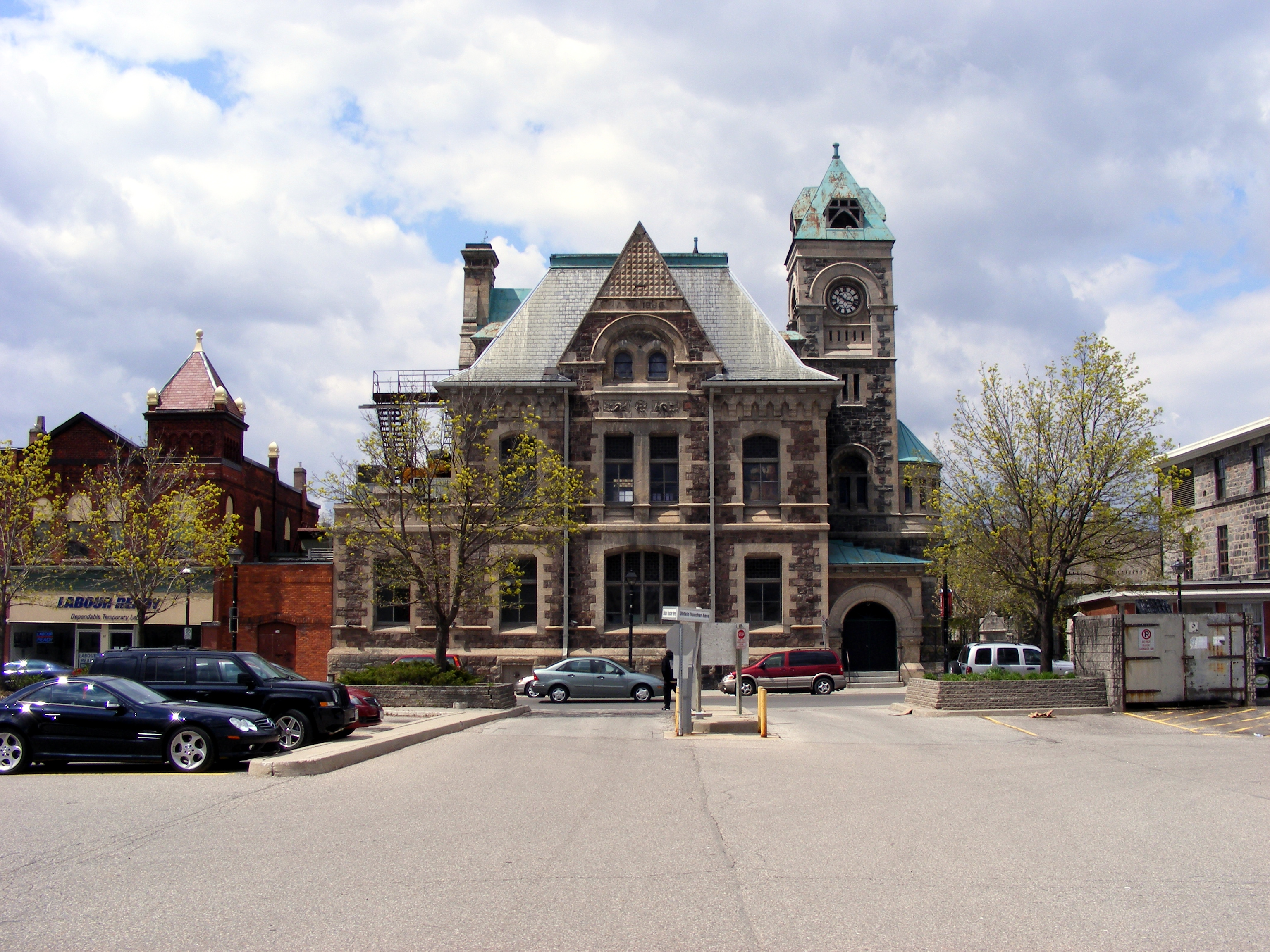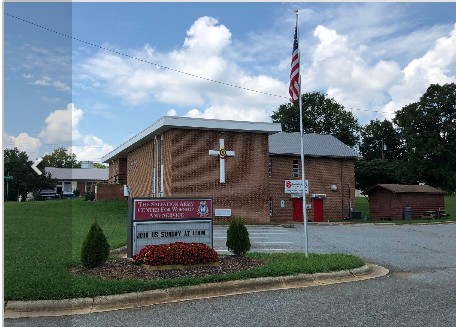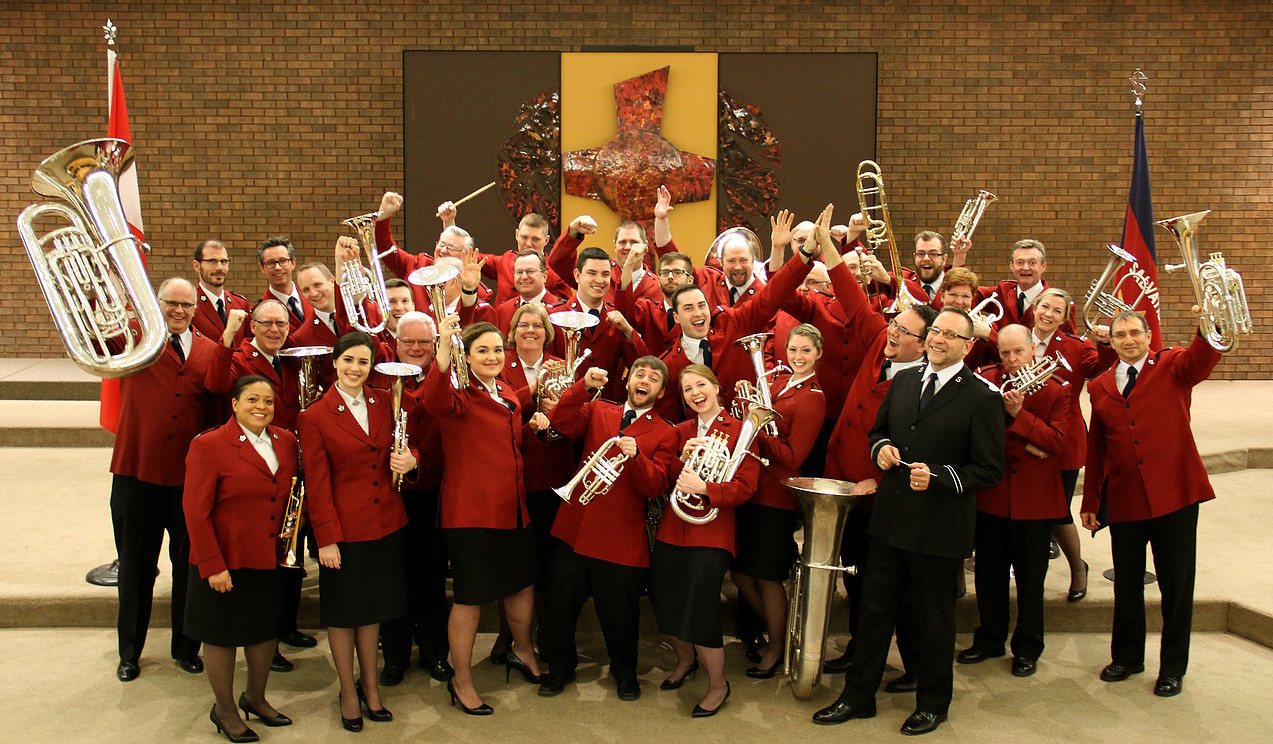Major Leslie Condon was a member of Music Editorial for many years, and at Easter we are looking forward to sharing with you an interesting insight into the major work 'Suite - Easter Glory'.
In the meantime, we thought we'd share this profile, briefly highlighting his music and ministry.
We hope this is of interest to you and look forward to hearing some of your stories about Les.
Major Leslie Robert Condon
Born - 28 October 1928, Hammersmith, West London
Died - 24 December 1983, Croydon, South London
A third generation Salvationist, Leslie Condon was brought up in the Norland Castle district of inner west London (now Holland Park), just a few steps away from the Salvation Army hall, where his maternal grandfather and uncles were bandsmen. The district suffered severe bombing in the Second World War and, like so many of his generation, he was evacuated to a less vulnerable area. For Les this was Fakenham, Norfolk, which became his ‘home from home’. He lived there with his maternal grandparents who had returned to their native Norfolk to retire (as a young man, this grandfather had come to London to seek his fortune, and had driven a horse-drawn bus).
It was at Fakenham Corps, during a meeting specially arranged for evacuees by Adjutant Bramwell Jarrett, the Corps Officer, that he was saved. Not surprisingly he always spoke of the Adjutant with appreciation and affection. He received his first music lessons here, learning the cornet, and later the euphonium.
Back in London, when Les left school, he was employed for a time in the printing department at Glaxo Laboratories. The knowledge of printing techniques that he gained during that time became invaluable in his work for the Music Editorial Department. Later, when the family moved back to Norfolk, he worked as a postman.
Leslie Condon served in the Royal Air Force and it was while he was serving as a wireless operator, stationed in Sharjah in the then Persian Gulf, that he heard the challenging voice of God calling him to full-time ministry. His call to officership came at Christmas in 1948, while putting his ‘worse-for-wear’ mates to bed, after their night of ‘celebrations’. During this time he instigated the clearing of sand and clutter from the disused chapel, and the restoration of the organ to playing order. His demobilisation papers referred to the ‘good work [done] in the church’.
After his release from the Royal Air Force he entered the William Booth College from Fakenham Corps as a member of the Ambassadors Session of cadets in 1950. He served at the college for a year as Assistant Cadet Sergeant-Major, and then was commissioned as an officer. On the 4th July 1953, at Fakenham Corps, he married Lieutenant Ruth Mitchell, who had also entered training from the same corps. Their initial appointments took them to what was then known as the Eastern Division, and included Hadleigh (Suffolk) and Bury St. Edmunds. They were to have five children, Dorothy (Dot), Sylvia, Valerie (Val), David and Philip. The children were all afforded the opportunity to learn instruments and enjoyed making music as a family.
Les was a keen cyclist for many years before that ‘obsession’ was replaced by various motorbikes. He cycled to and from work to Judd Street or International Headquarters and also often cycled the 100 miles from London to Fakenham (sleeping in such places as telephone boxes when needing to rest a while) while courting a certain Ruth Mitchell.
Les always enjoyed creating music, whether on paper or through the medium of an instrument. Around the age of fourteen he started writing music and taking his compositions to the Music Editorial Department at Judd Street. He had written several marches by the time he was fifteen. ‘March - Fakenham Temple’ (Triumph Series 652), unsurprisingly, was one. Eric Ball showed an interest in him and helped in his harmonic development. Ray Steadman-Allen once commented that ‘Les told me he found immense satisfaction, as a child, on seeing a finished jigsaw puzzle, so when he was older, he enjoyed showing a newly completed manuscript to Ruth, and then thanked God for allowing him into the outer fringe of the mystery we call music.’
As a compositional practice, Les always relied upon a notebook to commit ideas for future use, never upon his memory. Often a ‘missing link’ would come into his mind at a completely inopportune moment, and he had to put it down on paper immediately lest it disappear for ever. The inspiration for the opening cornet fanfare of ‘Festival Arrangement - The Call of the Righteous’ (Festival Series 294) came when looking out to sea at Hayling Island, (sharing some holiday time with Stan Thomas and family); Les apparently ran back to the car to get some manuscript and notated those opening bars there and then.
Sometimes a sermon outline would give him the beginnings of an idea. This was so in his ‘Tone Poem - Temple Vision’ (Festival Series 277), the result of an address he heard on Isaiah’s vision in the temple; the three points of the sermon, Vision of God, Vision of self, Vision of duty, being portrayed in his music. Incidentally, this piece was years in the making, the first movement alone took three years to complete, with many ideas being set aside in an effort to capture the awesome nature of the movement’s title. He also believed that the scope of the Salvationist’s ministry was so wide that its music must appeal to the connoisseur as well as the person less advanced in their own tastes.
When harmonising a melody he would first look to establish a strong bass-line, the final chords of the tune being entirely dependent upon this. The ‘knowledge of harmony needs to be thoroughly mastered by the would-be composer’, Les stated.
His first published composition was the ‘March - Duke Street’ (Triumph Series 412), and further material was awaiting publication when, in 1957, he was appointed to the International Music Editorial Department. Colonel Albert Jakeway was the Head, and Les later gave valuable assistance to Charles Skinner, Ray Steadman-Allen and Ray Bowes as they, in turn fulfilled the role. His published compositions to date number over 60 brass and 20 vocal titles. His work certainly has the ability to connect with musicians and listeners alike; from the imposing and exhilarating ‘The Call of the Righteous’ to the tender and beautiful ‘Cornet Solo - Prayer of Childhood’ (Triumph Series 831-2). Many of his works are still used today, and a further feature about his ‘Suite - Easter Glory’ will be included on this Facebook page.
Leslie Condon’s ministry in Music Editorial was interrupted from 1968 to 1976 when he became National Bandmaster and then National Secretary for Bands and Songsters. He was a greatly loved figure, whether leading band or songster weekends, speaking at National Councils, or as a director or guest speaker at music schools for young people within the Territory. His influence at Tylney Hall, the then National School of Music shaped and continues to influence the lives of many today. This special ministry extended across the world, taking him to the USA, Canada, Australia and New Zealand, as well as to various parts of Europe, Zimbabwe and Southern Africa.
Leslie Condon was a member of the International Staff Band on two occasions; the first appointment lasted ten years until he became National Bandmaster in 1968. On his return to the Music Editorial Department in 1976 he resumed his service, being appointed as Deputy Bandmaster. He was an excellent E-flat Bass player, composing the first extended solo for that instrument in the brass band journals. He premiered ‘Celestial Morn’ (Festival Series No. 264) to great acclaim in 1961 and the short melodic phrase etched onto his gravestone (alongside a tuba) is taken from the thematic material of this piece.
Les had a great sense of humour and a great capacity for fun, which stood him in good stead when he was required to entertain the crowds that gathered at the Army’s annual Holiday-plus Fellowship weeks during his time as National Secretary for Bands and Songsters.
In a feature for the magazine ‘The Musician’, in 1963, Les wrote an amusing letter to Father Christmas asking for, among other things, ‘trousers with sewn-up pockets for all those male songsters who persist in singing with one hand in their pocket; diaries for all bandsmen who never look at the notice board and an elementary harmony book for all those bandsmen who must embellish a tune with their own brilliant insertions to improve the band’s playing.’
If anyone believed in doing more and going further for people it was Leslie Condon, and at the mention of his name you will hear many accounts from people all over the United Kingdom Two stories in particular illustrate this. Just before Christmas, Grace Rolls, an officer who lived in South London, heard a knock at the door of the large house in which she and her invalid husband, Doug, had a flat. Suspecting carol singers, she picked up her purse before answering the door. She was amazed to find Les outside, helping members of his family out of the car, and bringing them upstairs to sing ‘specially for Doug’ – this was in the middle of a busy pre-Christmas season. The joy for Doug and Grace could not be measured.
The second story was from Major George Twitchen, a one time member of the Music Editorial Department. Following a break in their officership, George and his wife re-entered the ‘work’ at Morden Corps, south London. George felt that the welcome back to officership was not as warm as they expected with no letter, just an instruction of their appointment. Their first Sunday morning meeting was about to commence when Les appeared at the back of the hall. He sat with them on the platform and gave the benedictory prayer, praying a special blessing upon their ministry. It wasn’t until the Twitchen’s made their way outside that they realised that Les had cycled all the way from his home in Croydon to be with them that day, a distance of about ten miles.
These stories are but a small imprint of the legacy of care and attention that Les gave to people throughout his ministry.
Besides his Territorial duties Les was a loyal local officer, being Bandmaster at three corps, all in South London: Woolwich, Upper Norwood and Croydon Citadel. He was also the first Bandmaster of the South London Youth Band. He certainly spent himself in the service of God and of music, going the ‘extra league’ rather than the ‘extra mile’ and it was while leading Croydon Citadel Band in its carolling programme on Croydon High Street, that on Christmas Eve, 1983, Leslie Condon was called to Heaven. It was the end of the centenary year for his band; he had been presented to Her Majesty the Queen during the centenary festivities and had experienced a fulfilling and enjoyable season with them.
His funeral service, held at Croydon Citadel Corps, brought many together to a packed hall to convey their love and thanks for his ministry. The main hall was full for two hours beforehand, so seating and a video link was set up in the Community Centre where another hundred people were present. The International Staff Band (ISB) and Croydon Citadel Band were on duty. On his coffin rested a manuscript music score, as well as the more familiar flowers and uniform cap. After the funeral service, Leslie Condon was taken to his beloved Fakenham, where the united bands of The ISB, Croydon Citadel Band, and Fakenham Band, together with about 250 other Salvationists, marched through the streets from the hall to the cemetery for the burial service. Members of the ISB served as pallbearers; he was only the third active member of the band to be Promoted to Glory. His eldest daughter, Dot, published a book in 2009 about her father’s ministry entitled ‘Les Condon – He just couldn’t say no’. She writes the following:
‘You see, he belonged to all of us. We all had a share in him. That was the amazing thing about this gifted Salvationist with the bounding energy, simple faith, caring concern, musical genius and Christ-like spirit; a talent which has been spent in Thy service and a help and inspiration to so many people throughout the whole wide world. So many people were involved with him because he took the time, trouble and patience and care to become involved with them. He lived life to the full for Thy Kingdom.’
We continue to give thanks for the life and ministry of Major Leslie Robert Condon.
